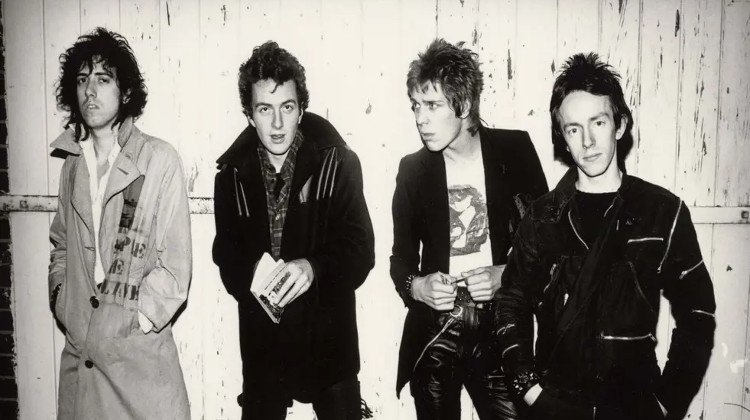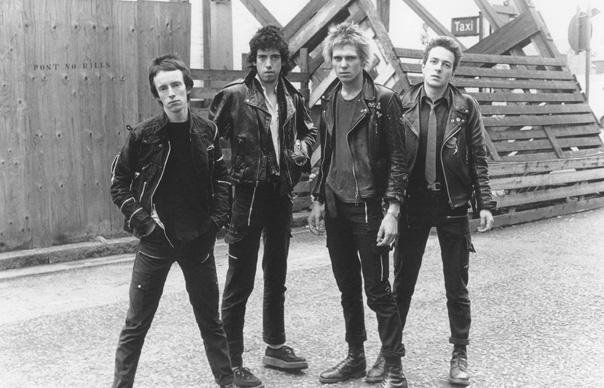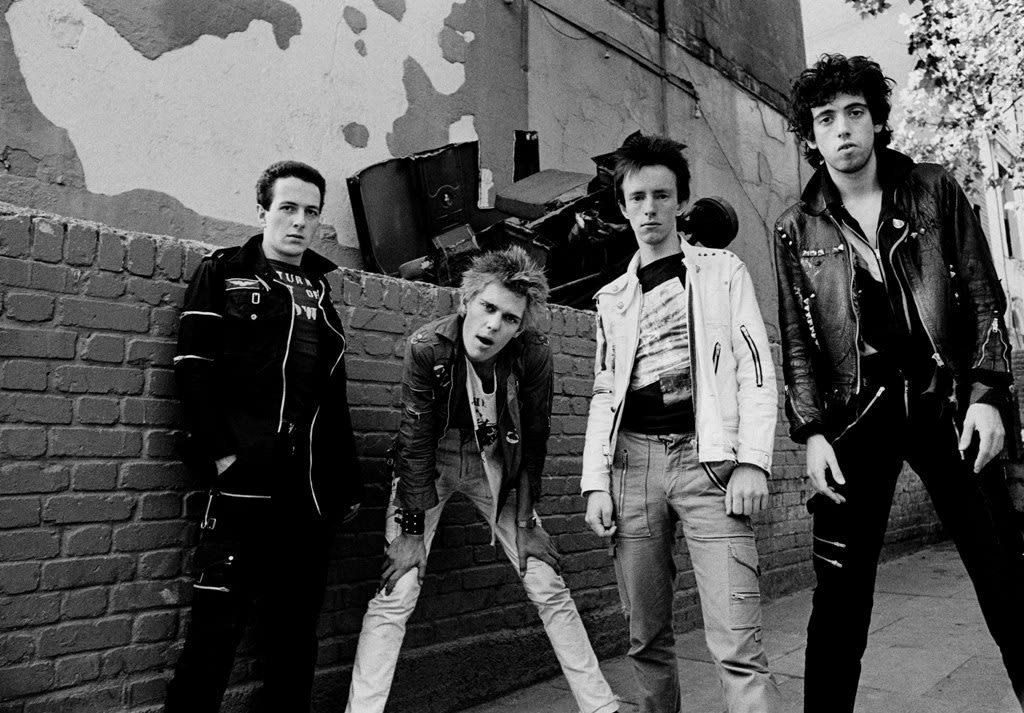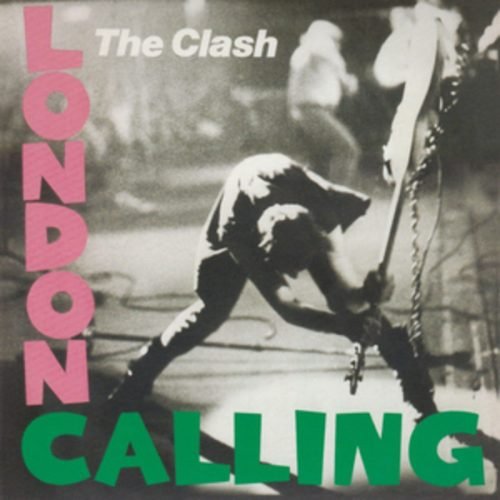When The Clash released “London Calling” in December 1979, it not only marked a pivotal moment in their discography but also a significant shift in the landscape of rock music. Prior to this, The Clash were primarily recognized as a punk band, with their eponymous debut album and its follow-up, “Give ‘Em Enough Rope,” capturing the raw, frenetic energy and socio-political angst that defined early punk music. However, with “London Calling,” The Clash ventured far beyond the boundaries of punk, embracing a multitude of genres including reggae, rockabilly, ska, and jazz. This album wasn’t just a continuation of their earlier work; it was a daring exploration into deeper, more diverse sonic territories.
Artistic Intentions
The artistic vision behind “London Calling” was fueled by a desire to challenge and redefine what punk music could be. The band, particularly frontmen Joe Strummer and Mick Jones, aimed to break free from the restrictive definitions that had started to cage punk music into a narrow formula. In various interviews, they expressed a sense of urgency and responsibility to address broader social issues and connect with a wider audience. This album, therefore, was conceived as a direct response to the tumultuous socio-economic conditions of late 1970s Britain—rampant unemployment, racial strife, and a growing disillusionment with government policies.
Through “London Calling,” The Clash sought not only to expand their musical expression but also to sharpen their commentary on these pressing issues. The result was an album that felt both revolutionary and deeply reflective, capturing the essence of its time while also achieving a timeless quality that continues to resonate with audiences today. Its blend of different styles mirrored the cultural melting pot of London itself, making the album a vibrant tapestry of sounds and stories. In doing so, The Clash not only redefined their own identity as a band but also laid down a new blueprint for what rock music could encompass in the decades to come.
Sonic Exploration

The production of “London Calling” is a masterclass in balancing clarity with rawness, a testament to the skills of producer Guy Stevens. Unlike the lo-fi, aggressively unpolished style that characterized many punk recordings of the era, this album opted for a slightly more polished sound that nonetheless preserved the visceral intensity of punk. The production manages to be both expansive and gritty, creating a sound that is immediate and engaging without sacrificing the edginess inherent to The Clash’s music. This approach effectively complements the album’s themes of chaos and resistance, encapsulating the tension and unrest of the times.
Musical Arrangements
The musical arrangements on “London Calling” are notable for their complexity and inventiveness, diverging significantly from the more straightforward approaches seen in earlier punk. The album opens with the title track’s iconic, apocalyptic bass line, setting a foreboding tone that is both powerful and urgent. Songs like “Rudie Can’t Fail” blend ska rhythms with a rock and roll swagger, showcasing the seamless integration of horns alongside the traditional punk guitar-bass-drums setup. “The Guns of Brixton” offers a darker, reggae-influenced sound that highlights Paul Simonon’s brooding bass lines and moody vocals, providing a stark contrast to the more energetic punk tracks.
Genre Elements
“London Calling” is a veritable smorgasbord of musical styles, incorporating elements of punk, reggae, rockabilly, ska, and even jazz. This eclectic mix not only demonstrates The Clash’s musical versatility but also their desire to push the boundaries of what punk music could incorporate. For example, the rockabilly flair of “Brand New Cadillac” pays homage to classic rock and roll, while “Jimmy Jazz” infuses a laid-back jazz feel, complete with a casual, improvisational quality.
This genre-blending is far from superficial; each stylistic choice is carefully woven into the fabric of the album, enhancing its narrative and thematic depth. The integration of diverse musical styles serves as a metaphor for cultural inclusivity and adaptation, mirroring the album’s lyrical themes of social and political unrest.
Lyrical Analysis

At the core of “London Calling” are themes of unrest, resistance, and societal observations, weaving a complex tapestry of messages that resonate with the listener. The title track, “London Calling,” serves as a clarion call, warning of apocalyptic visions and the collapse of society, emblematic of the band’s response to the political and economic turmoil of the time. This sense of impending doom recurs throughout the album, interlaced with commentary on issues such as consumerism in “Lost in the Supermarket” and the corrupting power of authority in “Clampdown.” There’s also a strong narrative of resilience and defiance, particularly evident in tracks like “Death or Glory” and “I’m Not Down,” which reflect personal perseverance against adversity.
Lyrical Depth
The lyrics of “London Calling” are a mix of direct narrative and metaphor, filled with clever wordplay and poignant imagery that elevate the album’s intellectual appeal. Joe Strummer and Mick Jones exhibit a keen eye for detail and an incisive wit, turning everyday observations into profound insights. In “Lost in the Supermarket,” Strummer articulates a feeling of disconnection and identity crisis through the seemingly mundane experience of wandering a supermarket, reflecting broader societal alienation. Meanwhile, “The Guns of Brixton” offers a more straightforward narrative, rich with references to the Brixton riots, encapsulating the tension and defiance of an oppressed community. The poetic nature of the lyrics invites interpretation, allowing listeners to find personal meaning within the broader political messages.
Emotional Impact
The emotional resonance of “London Calling” is profound and multifaceted, with the lyrics playing a crucial role in evoking a spectrum of emotions. The album elicits feelings of urgency and anxiety through its apocalyptic and dystopian imagery, particularly in songs like “London Calling” itself. However, it also taps into a sense of solidarity and empowerment, as in “Clampdown,” which becomes an anthem of resistance against authoritarian oppression.
The reflective and introspective lyrics of “Rudie Can’t Fail” and “Train in Vain” provide a more personal connection, expressing themes of loyalty, love, and betrayal that are universally relatable. These emotional layers make “London Calling” not just a collection of songs, but a resonant narrative that speaks to the listener’s own experiences and emotions, fostering a deep, empathetic connection.
Cohesion & Flow

“London Calling” exemplifies The Clash’s masterful control over the flow and narrative progression of their tracks. The album opens with the titular “London Calling,” setting a stark, urgent tone that resonates through the subsequent songs. From the defiant beats of “Brand New Cadillac” to the introspective vibes of “Lost in the Supermarket,” each track transitions smoothly yet with purpose, maintaining a narrative that speaks to both personal and political themes.
The progression feels almost cinematic, with each song contributing a scene to a larger story, culminating in the reflective closure provided by “Train in Vain.” This track, though famously not listed initially on the album cover, acts as a poignant epilogue that reflects on personal resilience amidst the broader social narratives explored earlier.
Thematic Consistency
Despite the wide array of musical styles and influences, “London Calling” maintains remarkable thematic consistency. The album is tied together by its overarching exploration of conflict, whether it be social, political, or personal. Even as the musical backdrop shifts from punk to reggae to rockabilly, the themes of struggle and resistance remain central. The emotional landscape of the album also adheres to a consistent arc, moving from an initial sense of alarm and urgency to a more reflective and introspective mood, before rallying into a message of defiance and hope.
There are moments of contrast, such as the shift from the somber “The Guns of Brixton” to the more upbeat “Wrong ‘Em Boyo,” but these transitions never feel jarring. Instead, they reflect the multifaceted nature of the album’s narrative, mimicking the complexity of the real-world issues it addresses. Each stylistic change serves to enhance the thematic content, adding layers of meaning that enrich the overall listening experience.
Standout Tracks & Memorable Moments

Several tracks on “London Calling” not only define the album but have also left an indelible mark on the landscape of rock music.
Key Tracks
The opening title track, “London Calling,” is immediately gripping with its ominous bass intro and Strummer’s urgent, declarative vocals, setting a tone of defiance and alarm that resonates throughout the entire album. “Spanish Bombs,” with its catchy melody juxtaposed against tales of the Spanish Civil War, is another standout, brilliantly weaving historical narrative with a singalong chorus, showcasing The Clash’s ability to blend educational content with high-energy rock.
“Lost in the Supermarket” stands out for its introspective lyrics and the relatable theme of feeling disconnected in a consumerist society. The song’s lighter, melodic approach contrasts with its deeper message, highlighting The Clash’s versatility. Another key track, “The Guns of Brixton,” brings a heavy reggae influence and is particularly notable for its foreboding tone and Paul Simonon’s lead vocals, which add a raw, authentic edge that complements its narrative about police brutality and resistance.
Memorable Moments
One of the most memorable moments in “London Calling” occurs in “Clampdown,” where a sudden shift from a heavy, driving guitar riff to a more melodic, hopeful bridge encapsulates the transformative energy of the album. This moment underscores the band’s skill in dynamic composition and serves as a musical metaphor for the possibility of change amidst oppression.
In “Train in Vain,” a hidden track that was not listed on the original album’s cover, the emotional impact is heightened by its placement and the story behind its almost accidental inclusion on the album. The track features an unforgettable opening with a distinctive guitar riff and harmonica that make it instantly recognizable. The lyrics, reflecting personal betrayal and disappointment, are delivered with a poignant sincerity that makes it one of the most emotionally resonant songs on the album.
Another powerful lyric that captures the essence of “London Calling” comes from the song “Death or Glory,” where Strummer sings, “He who fucks nuns will later join the church.” This line is a biting commentary on hypocrisy and the seduction of power, emblematic of the album’s overall critique of societal and political structures.
Each of these tracks and moments not only highlights The Clash’s innovative approach to music but also cements “London Calling” as a multifaceted album that challenges, entertains, and inspires. Its blend of raw energy, lyrical depth, and musical diversity makes it a seminal work that continues to influence and resonate with audiences around the world.
Artistic Contribution & Innovation

“London Calling” stands as a monumental release in the history of rock music, not merely adhering to the norms of punk but radically expanding them. When punk first emerged, it was marked by its raw simplicity and its sharp rebuke of the rock establishment. However, by the end of the 1970s, punk risked stagnation if it continued along a narrowly defined path. The Clash, with this album, broke free from those constraints, incorporating a wide array of musical styles and thus redefining what punk could be. This wasn’t just a punk album; it was a rock, reggae, ska, and pop album. It challenged the punk ethos not by abandoning it but by demonstrating its potential to evolve.
The album’s eclectic sound and socially conscious lyrics had a profound impact on the music industry, influencing not only other punk bands but also artists across various genres. Its success proved that punk had commercial viability without sacrificing its edge or its message, paving the way for future bands to experiment with more diverse sounds within the punk framework.
Innovation
Several aspects of “London Calling” highlight The Clash’s innovative spirit. Musically, the album’s genre-blending is perhaps its most groundbreaking element. Tracks like “Rudie Can’t Fail” and “Wrong ‘Em Boyo” showcase a seamless integration of ska and reggae, while “Jimmy Jazz” introduces a jazz-inflected sound that was atypical for punk bands at the time. This not only broadened the sonic landscape of punk but also reflected the cultural diversity of London itself, positioning the band as a voice for a wider community.
Thematically, the album ventured into areas few punk bands had dared to tread. While punk was often focused on nihilism and destruction, The Clash used “London Calling” to address complex social issues like unemployment, racial conflict, and the failures of capitalism. These themes were explored not with despair but with a call to action, a hope for change that was both revolutionary and deeply humanistic.
Production-wise, the decision to work with producer Guy Stevens also brought a unique dimension to the album. Stevens was known for his unconventional techniques and his ability to capture the raw, live energy of a band in the studio. His influence is evident in the spontaneous, almost chaotic energy that permeates the recordings, lending an authenticity that resonates with the album’s themes of upheaval and resistance.
Final Thoughts

“London Calling” by The Clash is a tour de force of musical prowess and visionary artistry. Its strengths are numerous and significant, beginning with its groundbreaking approach to genre blending. The album fearlessly incorporates elements of reggae, ska, rockabilly, and jazz, making it a pioneering work that not only redefined the scope of punk music but also set new benchmarks for the rock genre as a whole. Its thematic richness—tackling issues from social unrest to personal struggle—offers a lyrical depth that is both intellectually stimulating and emotionally compelling.
The production of the album, guided by the legendary Guy Stevens, is another key strength. It balances raw energy with enough polish to make the complex arrangements shine, capturing The Clash at their most dynamic and sincere. Each track is crafted with care, allowing the album to flow seamlessly while maintaining a vibrant urgency. This is a record that refuses to fade into background noise; it demands attention and contemplation.
If there are weaknesses, they might only be perceived in terms of the album’s ambitious scope, which some listeners might find overwhelming. The sheer variety of styles and themes could potentially dilute the focus for those accustomed to more uniform albums. However, this is a minor quibble in the context of the album’s vast achievements.
Official Rating
Given these considerations, “London Calling” merits a perfect score of 10 out of 10. This rating is not just for the album’s flawless execution but for its profound impact on music and culture. It stands as a pivotal work in The Clash’s career, marking their evolution from punk rockers to global musicians with something significant to say about the world. For listeners, the album offers a rich tapestry of sounds and stories that are as relevant today as they were in 1979. Its ability to resonate on multiple levels—musically, emotionally, and politically—ensures that it remains a vital part of contemporary music discussions.
